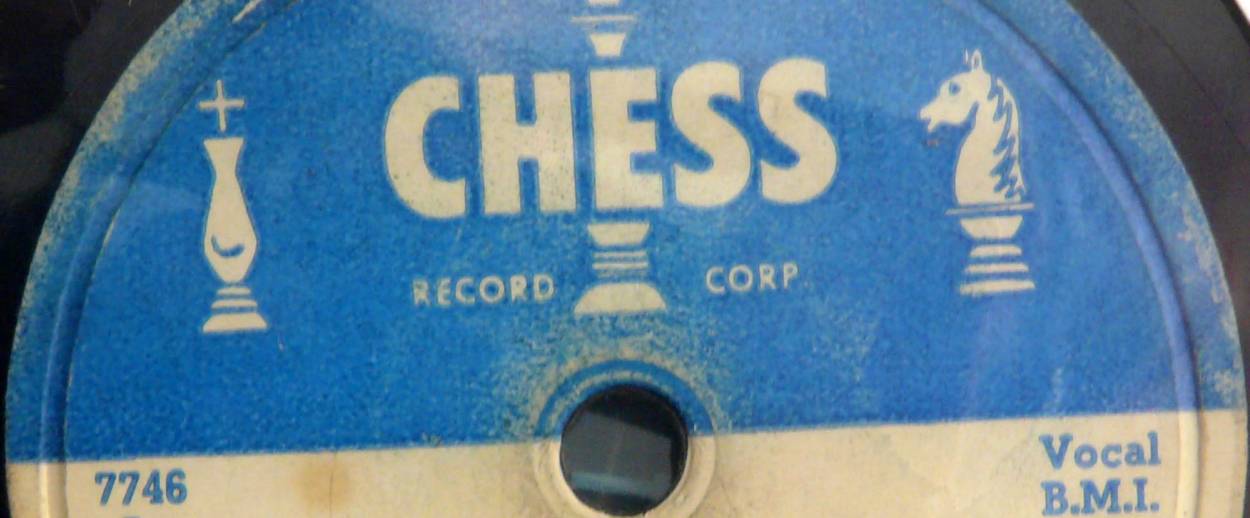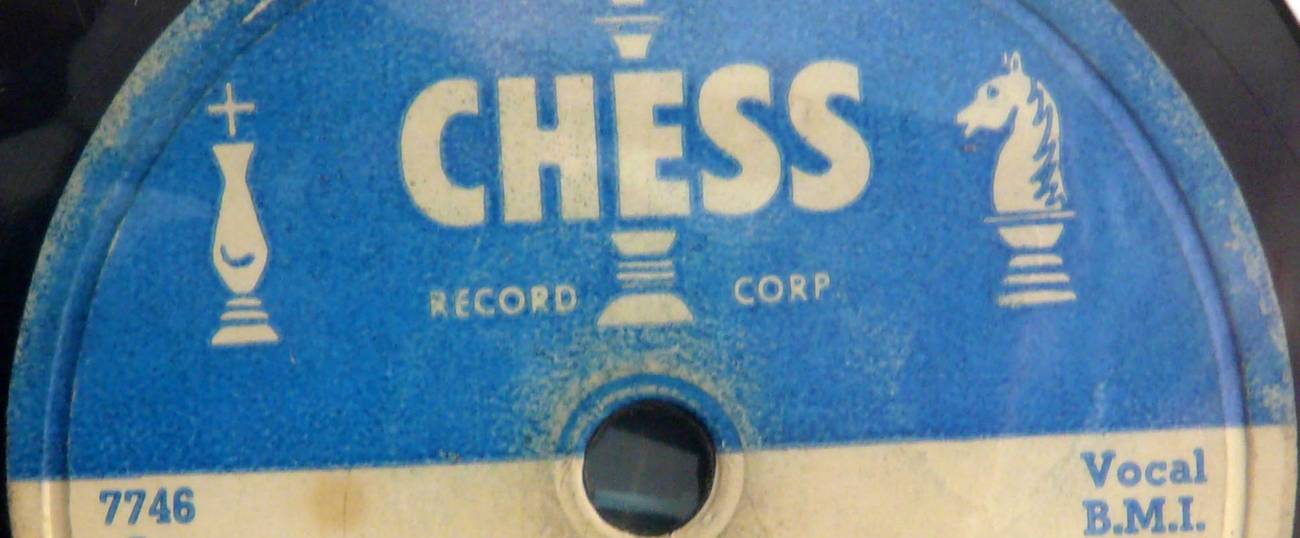Phil Chess was born Fiszel Czyż in 1921 in Czestochowa, Poland. He lived with his father, Yasef, his mother Cyrla, his sister Malka, and his brother, Lejzor (Leonard), in a small town called Motal—a shetl with no running water or electricity. “That was blues all the time,” Chess once said. In 1928 the Jewish family immigrated to Chicago. Reported the New York Times:
Chicago wasn’t easy, either. After working as a carpenter, Yasef, now Joe, acquired a junkyard and planned to have his sons work there. But Phil left for Western Kentucky University on a football scholarship, and Leonard acquired a liquor store in a black neighborhood, near their Jewish one. Having returned from Kentucky after three semesters, Phil helped Leonard in the store until he was drafted in 1943.
Leonard soon became a nightclub owner and Phil joined him there after his discharge. But the club burned down in 1950 and the brothers became committed to the record business—first with a share Aristocrat Records, which published Muddy Waters. The brothers then bought the company and renamed it Chess. In later years they acquired two subsidiary labels: Checkers and Argo (also known as Cadet).
Aristocrat had begun recording some of the black blues singers who had moved to Chicago from the South. The company pressed 3,000 copies of Waters’s single “I Can’t Be Satisfied”—even though Leonard said he did not understand Waters’s music—and they sold out in a day. The recording is now widely regarded as an early masterpiece of Chicago blues.
The first Chess record was Eugene “The Boss” Ammons’ “My Foolish Heart,” a bluesy saxaphone ballad that charted on Billboard magazine’s black pop charts.
During Chess’s first decade, a pantheon of musicians helped lay the foundation for rock ’n’ roll, among them Bo Diddley and, most notably, Chuck Berry, who was an unknown singer, songwriter and guitarist from St. Louis when Waters brought him to the brothers’ attention. Mr. Berry quickly made his mark with groundbreaking singles like “Maybellene” and “Roll Over Beethoven.” (Phil Chess said he considered Mr. Berry, not Elvis Presley, the real king of rock ’n’ roll.)
They sold Chess in 1969, after Leonard died, and Phil retired shortly thereafter. The Chess brothers were inducted into the Blues Hall of Fame in 1995. Phil was honored in 2013 with the Recording Academy’s trustee award. Phil Chess’s wife died earlier this year. He is survived by two sons, four grandchildren, and two great-grandchildren, according to the New York Times.
Jonathan Zalman, a staff editor, runs The Scroll, Tablet’s news blog.

